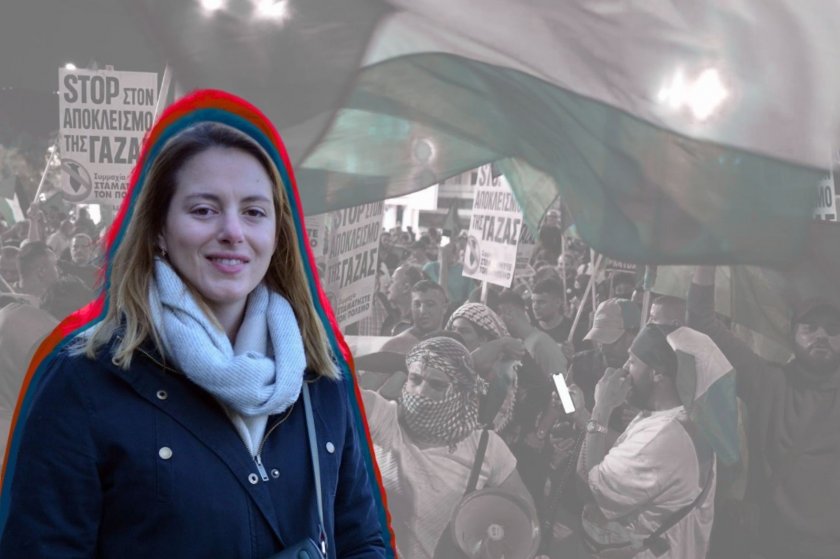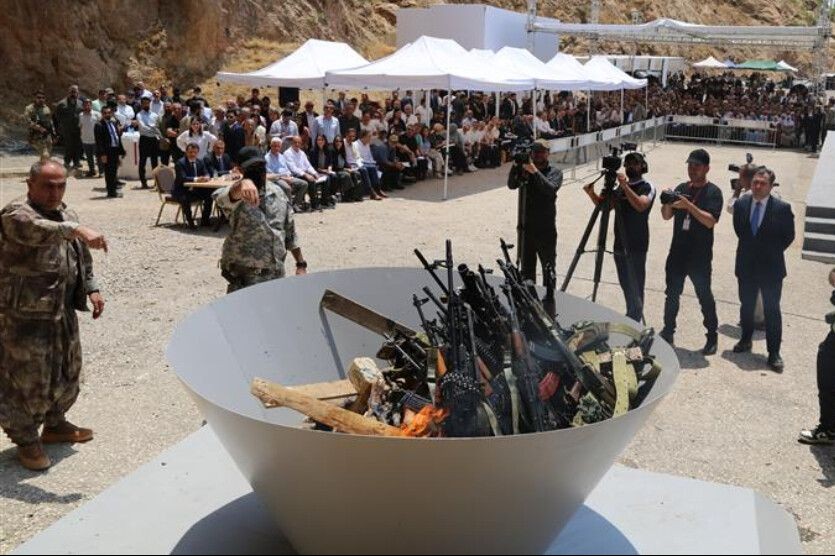Dens and beasts: Dehumanisation as politics in Turkey

Serdar M. Değirmencioğlu

Politics in Turkey now sounds a lot like an awful militaristic animation film from Hollywood. One keeps hearing references to caves and dens. Now that summer has begun, one might think that the government is trying to promote tourism. That is not the case. These are not references to tourist attractions in Turkey, such as the caves in Cappadocia. The government in Turkey hardly cares about tourism, if at all.
The current regime in Turkey has opted for militarism as far as domestic and foreign policy are concerned. Shooting a military jet belonging to Russia led to the downfall of tourism and trade relations with Russia in 2015. The regime won the support of nationalist hardliners in Turkey, who found pride in the shooting down of an aircraft, and the rest did not matter.
The current regime immersed itself in the undoing of Syria and turned Turkey into a safe haven for ISIS militants. The result was a series of horrific attacks, including those that targeted tourists from Germany and Israel, as well as the Istanbul Airport, the main entry point for tourists. Prospective tourists saw a country where ISIS attacks were mushrooming and decided to go elsewhere.
So what exactly are these references to caves and dens? They must be important given the fact that they are repeated over and over again by the president of Turkey. He says these might be here, or there, and everywhere. It sounds like Turkey is full of them. And they are a big threat to the survival of Turkey because there are ugly beasts in these dens.
Anyone who is familiar with the rhetoric of the president of Turkey would know that this is mythical discourse. He is intentionally employing militaristic references because the regime's current strategy is to fabricate an enemy out of every possible occasion. The goal is to polarise the public. The enemy is everywhere and the public has to choose whether they are with the enemy or the government (i.e., him). The enemy is foreign powers, the enemy is Russia, the enemy is anyone whom the regime considers an enemy. And the enemy can change if the regime says so.
The "den" analogy was initially employed to announce the imminent targeting of the Gülenists. For instance, in 2014 Recep Tayyip Erdoğan, then the prime minister, said:
Initially, the analogy was limited to the Gülenists. The government was strong and determined to "walk into the dens" of the Gülenists. Later it was also used for others, particularly for the Kurdish guerillas who were portrayed as beasts hiding in caves. The government was strong and determined to walk into the caves, wherever they might be.
The power of the "den" analogy, of course, comes from the inherent beasts. The regime wants to portray its enemies as subhuman, or ugly beasts, who deserve to be eliminated. They do not deserve anything better because they are, by definition, subhuman.
This is a strategy many others have used. Just this week, Donald Trump's son Eric Trump used the same strategy to portray Democrats and his father's political opponents as something other than human beings. He said, "I've never seen hatred like this. To me, they're not even people." This, as some critics have quickly pointed out, was very dangerous:
One might think this is an exaggerated analysis. However, history teaches us that portrayal of political opponents as subhumans provides a licence to kill. And in Turkey, it certainly does. Online video sites, such as YouTube, are full of videos where guerillas are ill-treated, tortured or simply executed. And one does not need to part of the guerilla forces. Anyone who is thought is "one of them" deserves the same treatment. The titles and the comments often refer to "subhumans" being eliminated and the corpses are often labelled as "carcas".
Just yesterday the president of Turkey spoke at a Ramadan dinner (iftar) organised in Ankara for top security force personnel. Speaking of those who took part in the coup attempt in July 2016, he said they deserved more than a prison sentence. "If", he said, "these terrorists ever finish their sentences and walk out of prison, the public will punish them: They will spit at their faces and drown them in spits."
For those who still do not understand what is happening in Turkey, these words should be sufficient. The president of Turkey is the judge, the jury, and the prosecutor. He knows who is guilty, who is a terrorist and who is an enemy. He also knows how justice can be carried out. He has no problem calling for a lynching-via-spitting and would not care if the spitting could turn into something more drastic. He knows that dehumanisation is a mental loophole that lets us humans harm other humans.
Turkey is clearly on a crash course and the very soul of the country is being corrupted for the sake of hegemony and tyranny. What is happening in Turkey is so outrageous, so surreal that it feels like an awful militaristic film. But it is not a film. This is not an animation. Turkey is in the midst of a tragedy that gets worse on a daily basis.
Forwarding to the next article...
10 seconds remaining





Follow Evrensel